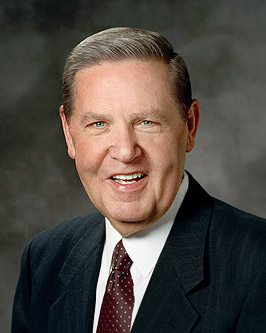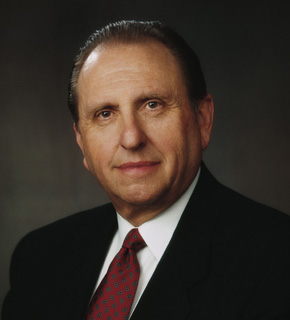Fast Offerings
SEARCH BY TITLE
 Are We Not All Beggars?
Are We Not All Beggars?
Now, lest I be accused of proposing quixotic global social programs or of endorsing panhandling as a growth industry, I reassure you that my reverence for principles of industry, thrift, self-reliance, and ambition is as strong as that of any man or woman alive. We are always expected to help ourselves before we seek help from others. Furthermore, I don’t know exactly how each of you should fulfill your obligation to those who do not or cannot always help themselves. But I know that God knows, and He will help you and guide you in compassionate acts of discipleship if you are conscientiously wanting and praying and looking for ways to keep a commandment He has given us again and again. You will recognize that I speak here of difficult societal needs that go well beyond members of the Church. Fortunately the Lord’s way of assisting our own is easier: all who are physically able are to observe the law of the fast. Isaiah wrote: “Is not this the fast that I have chosen? … “Is it not to deal thy bread to the hungry, and that thou bring the poor that are cast out to thy house? when thou seest the naked, that thou cover him … ? [that thou] undo the heavy burdens, and … let the oppressed go free … ?” I bear witness of the miracles, both spiritual and temporal, that come to those who live the law of the fast. I bear witness of the miracles that have come to me. Truly, as Isaiah recorded, I have cried out in the fast more than once, and truly God has responded, “Here I am.” Cherish that sacred privilege at least monthly, and be as generous as circumstances permit in your fast offering and other humanitarian, educational, and missionary contributions. I promise that God will be generous to you, and those who find relief at your hand will call your name blessed forever. More than three-quarters of a million members of the Church were helped last year through fast offerings administered by devoted bishops and Relief Society presidents. That is a lot of grateful Latter-day Saints.
 Goal beyond Victory
Goal beyond Victory
Now, there are other phases of the Lord’s work in which all members can participate, in which the growth of character is assured and the promise of life eternal bestowed. One such endeavor is referred to as the welfare program. Actually, the language of King Benjamin from the book of Mosiah provides a perfect scriptural description, even a solemn charge to each of us: “For the sake of retaining a remission of your sins from day to day, that ye may walk guiltless before God—I would that ye should impart of your substance to the poor, every man according to that which he hath, such as feeding the hungry, clothing the naked, visiting the sick and administering to their relief, both spiritually and temporally.” President Marion G. Romney spoke concerning the funding of caring for the needy when he said: “It has been, and now is, the desire and the objective of the Church to obtain from fast offerings the necessary funds to meet the cash needs of the welfare program. … At the present time we are not meeting this objective. We can, we ought, and we must do better. If we will double our fast offerings, we shall increase our own prosperity, both spiritually and temporally. This the Lord has promised, and this has been the record.” Are we generous in the payment of our fast offerings? That we should be so was taught by President Joseph F. Smith. He declared that it is incumbent upon every Latter-day Saint to give to his bishop on fast day an amount equivalent to the food that he and his family would consume for the day and, if possible, a liberal donation to be so reserved and donated to the poor. President Spencer W. Kimball suggested that, in our generosity, we go beyond a minimum amount. He urged that we “give, instead of the amount we saved by our two meals of fasting, perhaps much, much more—ten times more where we are in a position to do it.”
